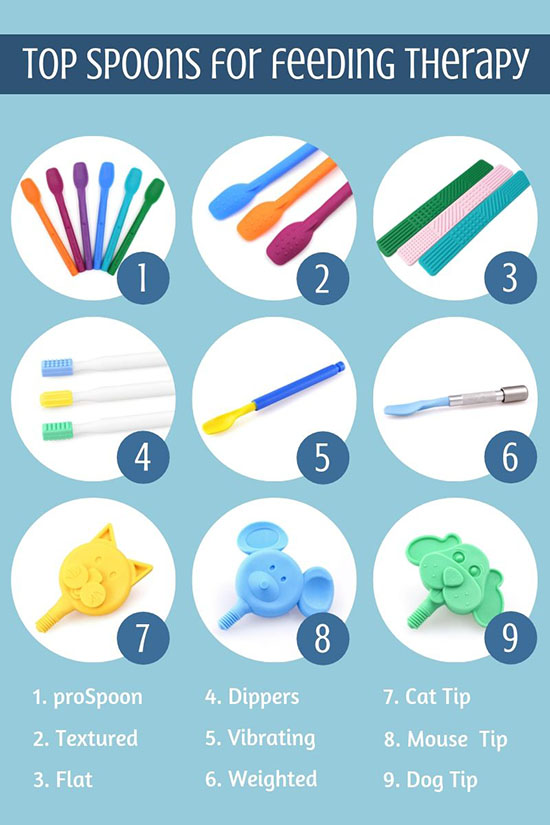Specialist Support for Food Aversion Therapy Long Island
Browsing the Path to Successful Feeding: Cutting-edge Methods and Interventions for Efficient Feeding Treatment
Are you battling to discover reliable strategies and interventions for effective feeding therapy? Look no more. This article will lead you through the course to success, supplying cutting-edge strategies to assess feeding obstacles and established attainable objectives. With evidence-based techniques, you'll discover how to resolve sensory processing concerns and utilize assistive modern technology and flexible equipment. Plus, we'll show you the importance of working together with families and caretakers for optimum feeding outcomes. Obtain all set to browse the course to successful feeding!
Assessing Feeding Obstacles and Identifying Objectives
You need to start by assessing your kid's feeding challenges and determining specific objectives for their therapy. It's important to interact these objectives with your youngster's feeding therapist so they can tailor the treatment sessions to address these particular difficulties. By analyzing your child's feeding obstacles and establishing goals, you are taking the initial action towards aiding them create successful feeding abilities.
Implementing Evidence-Based Strategies for Feeding Treatment
Implementing evidence-based strategies for feeding therapy can cause positive results for youngsters. When you include these methods into your kid's therapy strategy, you are making sure that the treatments used are supported by clinical research and have actually been verified reliable. This strategy boosts the chance of success and assists deal with the specific feeding difficulties your child may be experiencing.
By complying with evidence-based methods, you can supply your child with the most effective feasible care and assistance. These techniques might include using a range of sensory experiences during nourishments, such as exploring different appearances and tastes, to motivate approval of new foods. Furthermore, applying habits modification methods can assist resolve picky eating behaviors and promote healthier eating patterns.
Another vital facet of evidence-based feeding therapy is involving the household in the therapy process. By supplying education and assistance to moms and dads and caregivers, they can play an active role in helping their kid overcome feeding difficulties. This collaborative approach boosts the performance of therapy and promotes long-term positive adjustments in your child's eating routines.

Dealing With Sensory Handling Issues in Feeding Therapy
Attending to sensory processing concerns in feeding therapy can be difficult, yet it is vital for advertising a positive consuming experience for youngsters. When you experience a child with sensory processing troubles during nourishment, it is essential to recognize that their responses to certain structures, preferences, smells, and even audios are not deliberate (food therapist long island). By acknowledging and addressing these problems, you can aid develop a helpful setting that motivates healthy and balanced eating habits
One effective strategy is to introduce new foods gradually. Start with little, non-threatening sections and slowly enhance the amount with time. This technique allows the child to end up being accustomed to the food and its sensory properties at their own pace. In addition, offering a variety of structures and tastes can assist desensitize their sensory system and increase their food choices.
Involving the child in sensory play tasks can additionally be valuable. Motivate them to discover various textures, such as squishing, pressing, or touching numerous food items. This can assist stabilize sensory input Resources and lower aversions to specific textures.
An additional vital facet is providing a tranquil and organized eating setting. Decrease disturbances, such as loud noises or bright lights, which can overwhelm their senses and impede their capacity to focus on eating. Creating a foreseeable regular and making use of visual schedules can additionally aid the child feel even more protected and in control during nourishment.

Utilizing Assistive Innovation and Adaptive Tools
Using assistive innovation and flexible tools can greatly boost the feeding experience for kids with sensory processing problems. When you have difficulty with sensory processing, nourishment can be difficult and frustrating. With the right devices, you can make it a much more pleasurable and successful experience.
One alternative is using specialized utensils and plates designed to suit your needs. These tools may have textured handles or a larger grasp, making them less complicated to hold and control. Plates with separated areas can help separate various foods and prevent them from touching, which can be a source of discomfort for some youngsters.
In addition to specialized utensils and plates, there are also assistive gadgets that can be used during feeding. A heavy vest or lap pad can supply deep pressure input, aiding to calm and manage your sensory system. A vibrating toothbrush or chewable jewelry can provide dental sensory excitement, making the act of eating a lot more satisfying.
Modern technology can additionally contribute in boosting the feeding experience. There are gadgets and applications readily available that can offer auditory or visual signs, such as timers or triggers, to assist you stay focused and organized throughout nourishment.
Working Together With Family Members and Caretakers for Effective Feeding Results
When teaming up with caretakers and households, you can collaborate to create a helpful and nurturing setting for successful feeding results. By involving families and caretakers in the feeding therapy process, you can gain useful understandings right into the child's feeding practices, choices, and challenges. food therapist farmingdale. This partnership permits an alternative approach to feeding therapy, addressing not just the physical elements however also the psychological and emotional factors that may influence a kid's feeding capabilities
One key aspect of collaborating with caregivers and households is providing education and learning and training. By equipping them with expertise and skills, they can actively take part in the feeding treatment procedure and support the child's development outside of therapy sessions. This basics can consist of educating them feeding strategies, approaches for handling nourishment habits, and recognizing the value of consistency and routine in developing healthy eating routines.
Moreover, including family members and caregivers in goal setting and therapy preparation guarantees that their point of views and goals for the youngster are taken into factor to consider. By interacting, you can establish sensible and achievable goals that line up with the family's priorities and values - food therapist farmingdale. This collective approach cultivates a sense of ownership and empowerment, producing a strong foundation for successful feeding outcomes
On top of that, open and regular interaction with caregivers and households is essential for reliable collaboration. By maintaining recurring discussion, you can resolve worries, give assistance, and make essential modifications to the feeding therapy plan as needed. This interaction also enables sharing progress updates, commemorating achievements, and determining any difficulties or barriers that might occur.

Final Thought
You have actually checked out different techniques and interventions for reliable feeding therapy, such as evaluating difficulties, implementing evidence-based strategies, addressing sensory processing concerns, and using assistive modern technology. Remember to always stay proactive and innovative in your technique to feeding treatment.
It's crucial to connect these objectives with your youngster's feeding therapist so they can customize the treatment sessions to attend to these details challenges.Carrying out evidence-based methods for feeding therapy can lead to favorable outcomes for children.Addressing sensory processing issues in feeding therapy can be challenging, yet it is vital for promoting a positive consuming experience for youngsters. By involving families and caretakers in the feeding treatment procedure, you can visit their website gain valuable insights right into the kid's feeding obstacles, practices, and choices. By furnishing them with knowledge and abilities, they can proactively participate in the feeding therapy procedure and support the youngster's progression outside of treatment sessions.